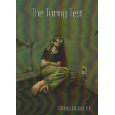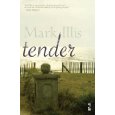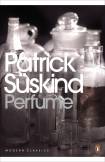(WARNING: This review contains discussion of adult concepts. Judge for yourself whether you wish to continue reading.)
There has been something of a stir about Tender Morsels in the British press recently (in the Observer and the Daily Express and the Daily Mail), mainly over the sexual content of what has been perceived to be a children’s book. First of all, let’s clear up some misconceptions: Tender Morsels is not a book for children — it is addressed to adults (be they old or young), and expects its readers to reflect on uncomfortable issues. Furthermore, though the book does include many harrowing events, it treats them far less frivolously than these write-ups suggest . But, in a way, it’s apposite that these issues should be raised; because one of the central themes of Tender Morsels is how far we should shield children from ‘difficult’ issues.
Margo Lanagan’s latest novel is an interpretation of the tale of Snow White and Rose Red, and unflinching from the very start. As a teenage girl, Liga gives birth to two daughters, one the result of sexual abuse by her father (who is subsequently killed), the other of a gang-rape committed by boys from the village (these are depicted obliquely — the latter taking place entirely ‘off stage’ — yet not in a way that skirts around them; later harrowing scenes may be less oblique, but are still not treated lightly). Unable to face life in a world that has done all this to her, Liga prepares to throw herself from a cliff; but is rescued by some magical agency that transports her to the world of her heart’s desire — a world much like her own, but idyllic. There she raises her daughters: Branza, fair and calm; and Urdda, wild and dark.
However, others eventually find their way into this dream-world: first a dwarf, who finds that he can turn things there into precious gems and metals; then a young man, dressed in a bear costume for a festival in his village, who turns into a real bear in Liga’s world. And the traffic is not all one-way. Urdda, having known only Liga’s heaven, stumbles into the real world and finds it much more to her liking. Ten years pass in the dream-world, and one in the real, before Urdda finds a way to bring her mother and Branza through; how will they cope in reality, with all its complicated, messy realness?
Before I get into the issues, let me say that Tender Morsels is a beautifully written book. For example, this, narrated by the boy-turned-bear:
From [Liga] and around her were all the smells of warmth, of home, of women. Fire and food, cloth and cleanliness. In my own house — my father’s house, but only me and Aran in it — no matter how I swept and scrubbed, all it smelled of was grief yet. I did not know what to do with it to make it a home again.
Lanagan is skilled evoking joy, mystery, and profound horror, all within the same narrative voice. And it’s a voice that feels right for telling fairytales (her first-person narrators ring similarly true) — because Tender Morsels is still a fairytale in many ways: magic causes trouble; wishes have drawbacks; those who do wrong are punished; there is a happy ending (though it’s not a neat one), and a strong moral heart.
What is the message of this story? It’s about facing reality head-on: Liga comes to realise that. by raising her daughters in her heaven-world — by trying to conceal the real world from them — she has deprived them of the opportunity to truly live. Life in the real world may be uncertain and dangerous, but it’s where people belong. (Lanagan labours this idea a little too much, but not so much that it disrupts her story.)
Does this mean, then, that the author is saying that sexual violence is everywhere, that it’s just a fact of life? I don’t think Lanagan’s message is that bleak, though it is honest and complex, and not necessarily comforting. I’ll explain my reasoning.
First, Lanagan stylises even the ‘real’ world of her novel: no hints of political structures, for example — no sense that this world would function as an actual place; therefore, I think she’s not saying that this is how reality is, but using sexual danger as a metaphor for danger in general. (Why sex? Perhaps because it’s an aspect of pre-industrial European societies that was there, but which we don’t often include when we think of them. I should also add, in case I’ve given the wrong impression, that Lanagan does include some positive portrayals of sex — it’s not always violent and brutal in the world of Tender Morsels.)
Even if we’re talking in generalities, then, does that mean the book is saying that children should just face up to the bad things in the world? Not necessarily — finding out the truth doesn’t automatically make life much easier for Lanagan’s characters; and Tender Morsels acknowledges the argument in favour of Liga’s raising her daughters in the dream-world: she was protecting them — what’s wrong with a mother wanting to do that? So I don’t think Lanagan is saying we should race to discover the many distressing aspects of life — just that we shouldn’t try to pretend they don’t exist.
It seems to me that a key issue behind the three articles I linked to above (and this related one from the Guardian books blog yesterday) is about trying to have some control over the manner in which children learn about ‘difficult’ issues. I don’t think it’s unreasonable per se to want to do that; I do think it’s unreasonable to expect books automatically to be a space conducive to that aim.
As for Tender Morsels, it’s a wonderful piece of writing that leaves one thinking deeply about the issues it raises. But it’s not for children.
Like this:
Like Loading...
 Earlier this month, the winner was announced of the
Earlier this month, the winner was announced of the  Tender is not strictly a novel, nor is it a conventional short story collection; it’s not even a typical mosaic novel, story cycle, or whatever name you care to give to a collection of linked stories. It is, however, a series of episodes in the lives of the Dax family, beginning in 1974 (when the parents meet), and spanning a total of thirty years. The title appears in the text, not in an emotional context, but in the context of a lamb stew which Ali Dax serves up — but her husband and son don’t seem to appreciate the tenderness of the meat, which had to be cooked slowly for it to attain that texture. All that care and effort, for what? This reflects what is perhaps the main theme of Tender — feeling discontented with life, looking back and wondering what happened, where it went.
Tender is not strictly a novel, nor is it a conventional short story collection; it’s not even a typical mosaic novel, story cycle, or whatever name you care to give to a collection of linked stories. It is, however, a series of episodes in the lives of the Dax family, beginning in 1974 (when the parents meet), and spanning a total of thirty years. The title appears in the text, not in an emotional context, but in the context of a lamb stew which Ali Dax serves up — but her husband and son don’t seem to appreciate the tenderness of the meat, which had to be cooked slowly for it to attain that texture. All that care and effort, for what? This reflects what is perhaps the main theme of Tender — feeling discontented with life, looking back and wondering what happened, where it went. Perfume is one of those books I had heard of by reputation, but didn’t actually know anything about. And now I’ve read it… well, it’s not what I was expecting, but it’s good. I liked it, but saying so feels a little uncomfortable — as well it ought!
Perfume is one of those books I had heard of by reputation, but didn’t actually know anything about. And now I’ve read it… well, it’s not what I was expecting, but it’s good. I liked it, but saying so feels a little uncomfortable — as well it ought! My first Ishiguro book, Nocturnes is a cycle of ‘five stories of music and nightfall’ (says the front cover). I spent most of the book feeling curiously unsatisfied; and I still feel that way now I’ve finished it. As far as I can see, the stories are linked so tenuously as to be hardly worth considering as a ‘cycle’. If Ishiguro has a wider point to make with them, I’m not sure what that point is. And if the tales are meant to be entertaining, insightful, or moving… well, bar a couple of moments, I didn’t really find them so.
My first Ishiguro book, Nocturnes is a cycle of ‘five stories of music and nightfall’ (says the front cover). I spent most of the book feeling curiously unsatisfied; and I still feel that way now I’ve finished it. As far as I can see, the stories are linked so tenuously as to be hardly worth considering as a ‘cycle’. If Ishiguro has a wider point to make with them, I’m not sure what that point is. And if the tales are meant to be entertaining, insightful, or moving… well, bar a couple of moments, I didn’t really find them so.
Recent Comments